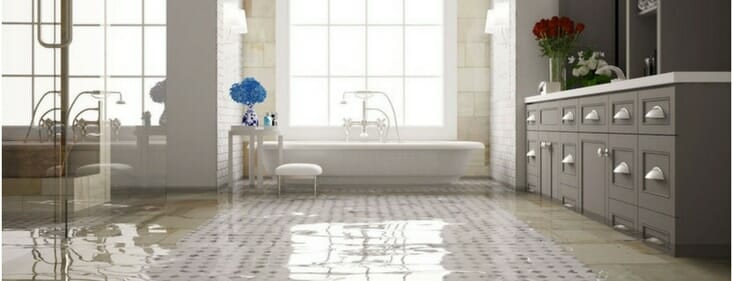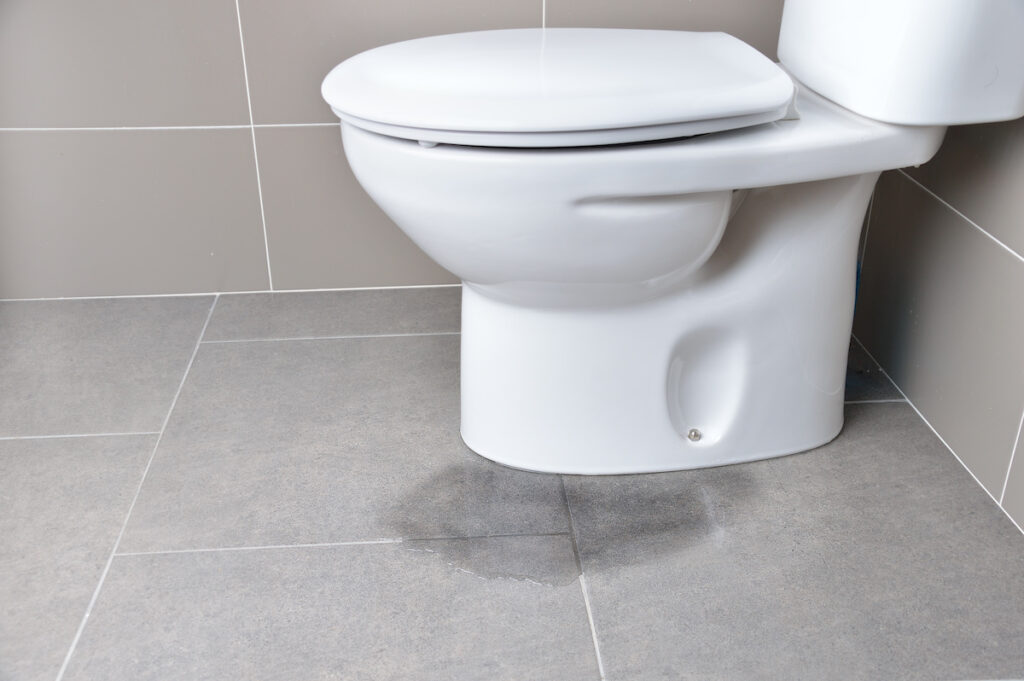Typical Causes of Water Damage in a Bathroom
Typical Causes of Water Damage in a Bathroom
Blog Article
What're your thoughts on How to Repair and Prevent Bathroom Water Damage??

Water damage typically occurs in the washroom as a result of the water used daily. In some cases, the damage could be a little mold and mildew from the shower. Various other times, it's substantial damage on your flooring. Whatever it is, it is constantly excellent to recognize the reason and prevent it before it happens.
This guide will undergo a few of the typical causes of water damage in the bathroom. We will also examine what you can do to prevent these causes from damaging your restroom. Let's dive in.
These are the typical reasons you would have water damage in your restrooms and how you can find them:
Excess Moisture
It's awesome to have that long shower and splash water while you dance around and act like you're executing, yet occasionally these acts can create water damage to your shower room.
Sprinkling water around can trigger water to visit corners and form mold and mildews. See exactly how you spread excess moisture around, and when you do it, clean it up to prevent damages.
Splits in your wall surface ceramic tiles
Restroom wall tiles have actually been particularly created for that function. They protect the wall surface from dampness from individuals taking showers. Nevertheless, they are not indestructible.
Sometimes, your washroom wall surface ceramic tiles crack and also enable some wetness to seep right into the wall surface. This could potentially damage the wall surface if you don't take any kind of activity. If you discover a crack on your wall surface ceramic tiles, fix it promptly. Don't wait till it destroys your wall surface.
Overflowing commodes and sinks
As human beings, in some cases we make blunders that might create some water damage in the restroom. As an example, leaving your sink tap on can trigger overruning and damages to other parts of the shower room with dampness.
Also, a malfunctioning toilet can cause overruning. For example, a busted toilet manage or other parts of the tank. When this happens, it might damage the floor.
As quickly as you discover an overruning sink or bathroom, call a plumbing professional to help take care of it instantly.
Ruptured or Leaking Pipelines
There are several pipes lugging water to different parts of your shower room. Some pipelines take water to the toilet, the sink, the faucets, the shower, and numerous various other places. They crisscross the little location of the restroom.
Occasionally, these pipes might obtain corroded as well as ruptured. Various other times, human action might create them to leak. When this occurs, you'll locate water in the corners of your restroom or on the wall surface.
To detect this, look out for gurgling wall surfaces, molds, or mildew. Call an expert emergency situation plumber to fix this when it occurs.
Roof covering Leaks
In some cases, the issue of water damage to the washroom might not come from the shower room. As an example, a roof leak could trigger damages to the washroom ceiling. You can spot the damage done by taking a look at the water spots on the ceiling.
If you locate water discolorations on your ceiling, check the roof to see if it's damaged. Then, call an expert to aid address the concern.
Conclusion
Water damage to your restroom can be bothersome. Nevertheless, you can handle it if you stop a few of the reasons stated in this overview. Call a specialist emergency situation plumber if you notice any severe damage.
How to Prevent Water Damage in Your Bathroom?
Water damage repair is an expensive, meticulous, and lengthy process. Unfortunately, bathrooms are the most susceptible rooms to water damage due to toilets, showers, and sinks. Pipes and fixtures wear out over time and are not immune to damage. But all is not lost, as there are ways to prevent water damage from occurring in your bathroom.
Check Your Plumbing
Nothing lasts forever, especially pipes, which can rust and begin leaking over time. You should periodically conduct pipe inspections and pay attention for any musty smells or water stains that may indicate you need water damage repair. Here are some things to check:
Frequently test valves for your toilet, shower, and sink to ensure they are properly working. Check faucet supply lines hidden under vanities and replace when needed. Replace cracked or deteriorating caulking along sinks, tubs, and showers. If you notice a clog in your sink, call in a professional. Since you can’t check the pipes in the wall, keep an eye out for stains, drywall bubbling, musty smells, and excess moisture; if the bathroom is on a second level, check the ceiling of the room directly below for these signs. Don’t Overwork Your Toilet
One of the most common reasons bathrooms need water damage repair is due to overflowing toilets. Save yourself the hassle of cleanup by being mindful and not pushing your toilet to extreme limits. If you have young children, it is especially important to keep an eye on them when they are in the bathroom and to teach them how to avoid clogging the toilet. Here are some more tips to help prevent your toilet from overflowing:
If you have a septic tank, only use septic-safe toilet paper Do not flush anything down the toilet besides toilet paper; items like diapers and sanitary napkins will clog the piping Pay attention to your toilet’s water level: If it’s low, it could mean it is partially clogged or that there is a crack in the toilet bowl https://www.alure.com/home-improvements-blog/resources/how-to-prevent-water-damage-in-your-bathroom

As a keen reader about How to Repair and Prevent Bathroom Water Damage?, I thought sharing that excerpt was a smart idea. In case you enjoyed reading our page please remember to share it. We cherish reading our article about How to Repair and Prevent Bathroom Water Damage?.
Request Service Report this page